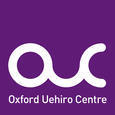TT24 Week 1 Internal Uehiro Seminar
Professor Filimon Peonidis (Department of Philosophy, Aristotle University of Thessaloniki)
Is it morally permissible to shoot down, in the last resort, a hijacked civilian airplane to save a greater number of lives?
Title: Is it morally permissible to shoot down, in the last resort, a hijacked civilian airplane to save a greater number of lives?
Abstract:
In the well-known theatrical play Terror (2015) written by the German literary author and defense barrister Ferdinand von Schirach, an air force officer is put into trial for shooting down, against the orders of his superiors, a passenger airplane, which had been hijacked by terrorists with the intention to crush it into Arena Allianz in Munich, thus killing scores of people.
Inspired by this play I would like to examine the following imaginary but not unlikely to occur case:
• A passenger airplane that is hijacked and controlled by terrorists is planned to crash into a stadium full with thousands of people. There is no doubt about the terrorists’ determination to accomplish their mission. If they are successful, they will bring about a disaster of immense proportions.
• It is too late or impossible for the passengers or the crew to prevent this catastrophic event.
• There is no time to evacuate safely the stadium.
• All efforts to steer the plane off course and/or convince its captors to proceed to a forced landing have failed.
• The air force has the means (surface-to air-missiles, air-to-air missiles etc.), if it is ordered by the government, to shoot down the plane just before reaching its target, thus killing all those on board 5 minutes before they are killed in the crash.
The question is what should be done. I will argue that:
a. A small group of innocent people x is going to be killed at t by villains. Their death is inevitable.
b. According to the villains’ plan, if group x is killed at t, another equally innocent albeit much larger group of people y will inevitably be killed by them.
c. The air force of a sovereign state, which is under obligation to protect and defend the people in general from deadly attacks, can kill the villains at t-5 to save the members of group y from an imminent death. However, by killing the villains it will inevitably kill all members of group x.
d. The death of the members of group x at t-5 will not be more painful than their death at t.
e. It is morally required for the air force to kill the villains at t-5 on grounds of self-defense. It is also morally permissible to kill group x, since the extra harm its members will suffer, that is the shortening of their doomed lives for five minutes, is outweighed by the benefit of saving a much greater amount of lives.
Speaker: Filimon Peonidis is professor of moral and political philosophy at the Aristotle University of Thessaloniki and director of the Philosophy Lab “Texts and Interpretations”. His research interests are in moral philosophy with emphasis on Mill and applied ethics, democratic theory, the history of democratic traditions, liberalism, and the philosophical foundations of free expression. His work in English includes the following books: Autonomy and Sympathy: A Post-Kantian Moral Image (2005), Democracy as Popular Sovereignty (2013) and Philosophical Perspectives on Freedom of Expression (forthcoming 2024).
A hybrid event for Uehiro Centre Members and Associates (booking not required).
| In-person venue: | Oxford Uehiro Centre, Suite 1 Seminar Area, Littlegate House, 16-17 St Ebbe’s Street, Oxford OX1 1PT (buzzer 1) |
| Zoom: | Joining link available from the Centre's Internal Google Calendar, or on request from axelle.duquesnoy@philosophy.ox.ac.uk |



